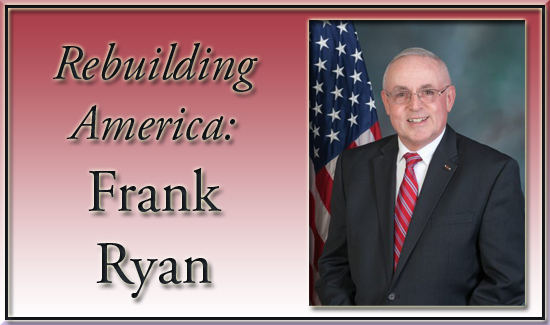Government Greed

Government greed!
“Render unto the Caesar the things that are Caesar’s and to God the things that are God’s”
Matthew 22:21.
But what should we do when Caesar (the government) wants everything.
Can government be greedy?
Greed – what an interesting word.
Usually, the term greed has only been applied to business people exploiting the consumer or the worker. Occasionally, the term has been applied to anyone involved in perpetrating a financial exploitation of another.
Seldom however is the word greedy applied to government or those working in government but perhaps it should be.
As a CPA and a legislator, recently elected to a second term, and in my late 60s, the political arguments about ”haves” and “have-nots” or socialists versus capitalists have taken a new twist.
In the political world, the term “haves” is now being applied to government workers and teachers benefiting from the few remaining defined benefit plans and extraordinarily expensive health care plans.
Many socialists decrying the wealth of the top 1% seldom, if ever, include government employees in that calculus but perhaps they should.
To effectively describe what many citizens are upset about concerning the world of government, one must understand a financial term which quantifies the nature of the problem so many verbalize but have difficulty explaining.
In the financial world we use a concept called present value. Present value very simply states in today’s dollars what a future benefit be valued at in today’s dollars. In other words, to get a pension of $2000 a month for the rest of your life everyone knows that is worth well more than $2000. The real value to you of that guaranteed monthly payment is based upon your life expectancy, expected inflation, and if the benefit, or the $2000, can increase with inflation.
For example, if you retire as a state worker or teacher at age 55 and receive a pension of $24,000 a year that $24,000 per year assuming you live 30 more years, and a discount rate of 2%, would have a present value of over $547,000!
In addition to that $547,000, which is extraordinary, would be the equally extraordinary amount of the value of health insurance which is only now beginning to be quantified but would likely exceed the value of $500,000.
It is inappropriate to say that someone benefiting from such a government program or employment is being greedy because for most people that is not their intent but it is the reality. Unfortunately, due to the difficulty of explaining present value, many citizens do not even know that they are on the “hook” for such massive payouts when they themselves are not able to provide for themselves.
What is problematic is when the governments employees are able to benefit in ways that the people who are paying the bills, meaning the taxes, cannot. I frequently hear the comment that people are angry that they have to work until age 70 so that someone else can retire at 55.
Compounding that anger is when a government official calls Social Security an entitlement when in fact no government funds were expanded to finance Social Security.
The dichotomy relative to government sector versus private sector, which sets the stage for this public outcry, occurs because while the free market system forces the private sector firm to adjust to global market conditions, the government has no filter or protection for its market participants.
For example, in the steel industry in the 1970s, the market for steel changed and the industry failed to adjust quickly enough and the industry itself failed. Similar results happened in railroads, shipyards, airline, banks, mining, and any industry subject to free market conditions.
The steel industry refused or was unable to modernize effectively in light of emerging competition from overseas in the 1970’s as America’s wartime enemies emerged as formidable competitors. The industry rode the great successes that it enjoyed due to the “benefits” of being untouched by enemy destruction during World War II.
One of the causes of the lack of competitiveness of the steel industry resulted from the almost monopoly control the industry had on the post World War II world. The “monopoly” of the steel industry lead to JFK’s incendiary attacks against the industry which were almost legendary at the time.
President Kennedy’s attacks on the steel executives though failed to underscore the staggering economic disparity between steel workers and employees in other industries. The typical experienced steelworker in the 1970’s received 13 weeks per year of vacation compared to a national average of two weeks. These extremely high labor costs compared to others were passed on to the consumer until competitive entered in the industry and the domestic industry’s excessive costs collapsed the industry. The pay rates could have continued if productivity had continued to improve but work rules and contracts frequently prohibited those productivity gains.
Unfortunately, government has no such self-regulating filter. If government fails, the nation fails, and the economy will collapse. Iceland and Greece are recent examples.
In reality governments do not adapt to changing market conditions because they do not have to because they have monopoly control of their market – the nation.
Greed is greed! No matter the source.
To pretend that greed operates only with the wealthy is silly.
The teacher’s unions, public sector employees unions or corporations with monopoly like powers demand benefits that others are forced to pay that they themselves will never have.
Socialism versus capitalism is more than just a matter of semantics. It is about a way of life – a life under socialism that is protected by politicians! Greed is greed! It knows no economic boundaries only political ones.
Frank Ryan, CPA, USMCR (Ret) represents the 101st District in the PA House of Representatives. He is a retired Marine Reserve Colonel, a CPA and specializes in corporate restructuring. He has served on numerous boards of publicly traded and non-profit organizations. He can be reached at [email protected].




